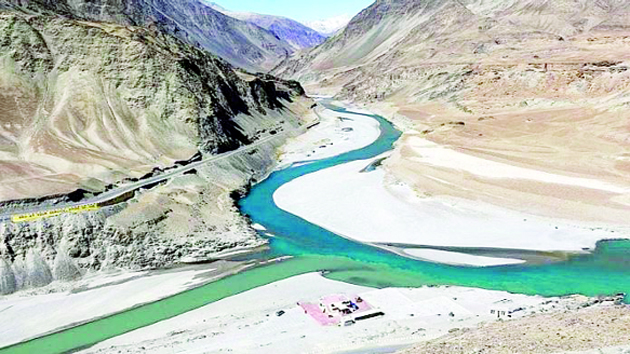Gaurav Gupta
Under the dynamic leadership of Prime Minister Narendra Modi, India has achieved a significant diplomatic and legal milestone. On January 20, 2025, the World Bank-appointed Neutral Expert issued a press release upholding India’s stand regarding the Kishenganga and Ratle hydroelectric projects in Jammu and Kashmir under the Indus Waters Treaty (IWT) of 1960.
This historic ruling validates India’s consistent and principled position that all seven questions raised by Pakistan fall within the competence of the Neutral Expert, as outlined in the treaty. The Ministry of External Affairs (MEA) played a critical role in presenting India’s case effectively and ensuring that the nation’s interests were safeguarded at every step of the process.
Diplomatic Success Under Strong Leadership
Under Prime Minister Modi’s visionary leadership, India has reinforced its position as a global leader in diplomacy. The MEA’s strategic efforts in representing India’s stance before the Neutral Expert were instrumental in this landmark victory, demonstrating the Government’s unwavering focus on upholding national interests while adhering to international obligations.
Securing India’s Developmental Rights
The Kishenganga and Ratle hydroelectric projects are essential for the development of Jammu and Kashmir. The Neutral Expert’s decision ensures that these critical projects, which reflect India’s rightful and responsible use of its natural resources, can proceed unhindered.
The ruling underscores that the objections raised by Pakistan fall squarely under the Neutral Expert’s competence, as per the treaty’s provisions. This decision ensures India’s developmental aspirations are safeguarded within the legal framework of the IWT.
Rebuffing Pakistan’s Baseless Actions
Despite repeated calls by the World Bank for a mutually agreeable resolution, Pakistan unilaterally initiated parallel proceedings through an illegally constituted Court of Arbitration. India, committed to preserving the sanctity of the treaty, refused to participate in these unauthorized proceedings.
The Neutral Expert’s decision on January 20, 2025, vindicates India’s stance, reinforcing that such differences must be resolved exclusively under the treaty’s prescribed mechanisms.
A Testament to Effective Diplomacy
The Neutral Expert’s decision to proceed with the next phase of assessing the merits of the differences raised by Pakistan is a testament to India’s effective diplomacy. The MEA’s meticulous handling of the issue and adherence to international norms highlight the country’s capability to resolve disputes within the framework of international law.
Commitment to Dialogue and Treaty Integrity
While celebrating this diplomatic success, India remains open to constructive engagement with Pakistan. The Government has reiterated its willingness to explore dialogue under Article XII(3) of the treaty for its review and modification. This approach demonstrates India’s commitment to preserving the treaty’s integrity while fostering regional peace.
Conclusion
The Neutral Expert’s ruling, announced on January 20, 2025, is a monumental victory for India. It showcases the Government’s ability, under the leadership of Prime Minister Narendra Modi and with the tireless efforts of the Ministry of External Affairs, to safeguard its sovereignty and developmental rights while adhering to international agreements.
This decision not only affirms India’s principled stance but also reinforces its reputation as a responsible global power committed to resolving disputes through legal and diplomatic channels. The ruling stands as a shining example of India’s effective diplomacy and unwavering commitment to protecting its national interests.
(The author is BJP Spokesperson J&K UT, Geopolitical Expert)


